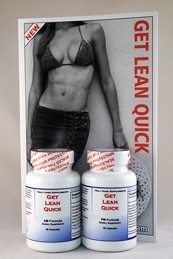| Free Weekly Diet and Fitness Tips Newsletter |
 Click Here To Order Now!
|
Night Blindness
By Dr. Jonathan V. Wright
As we grow older, some of us have difficulty seeing in twilight, or after dark. Most of the time, a visit to the eye doctor shows no eye disease and we're told that "night blindness" is just another part of getting older. It's not necessarily so! Even though there's no routine drug or surgical treatment in "mainstream" medicine, many folks whose twilight or night vision has declined have been able to partially or fully reverse the process by taking vitamin, mineral and botanical supplements.
The best-known of these is vitamin A. Usually, I recommend 50,000 units daily until the vision improves and then a maintenance level of 25,000 units daily. The chances of vitamin A toxicity at these levels in an adult are remote, but it's wisest to work with a doctor skilled and knowledgeable in nutritional and natural therapies to monitor even a remote possibility.
Although very closely related to vitamin A, beta-carotene has a few unique functions of its own. I usually ask folks to take 50,000 units of beta-carotene right along with the vitamin A, as research suggests beta-carotene is also helpful to improve "night blindness". If vitamin A is being used at the same time, beta-carotene does not transform into vitamin A to increase the risk of excess vitamin A.
The retina of our eyes has a high zinc content so it makes good common sense that zinc can help to improve
"night blindness" also. Usually, I recommend zinc picolinate or zinc citrate 30 milligrams twice daily, cutting back to 30 milligrams daily maintenance once vision improves. Since long-term zinc supplementation can reduce copper levels, it's wisest to work with a doctor skilled and knowledgeable in nutritional and natural therapies to check for any possible problems in this area.The herb bilberry (European blueberry) promotes good eye health at any age and is useful against many eye problems, notably cataracts and macular degeneration. "Night blindness" is also on the list. 200 to 400 milligrams daily of a standardized 25% extract are usually enough to help achieve a considerable improvement in night vision.
Another herbal remedy for "night blindness" are a closely related group of flavonoids call pycnogenols. Currently, pycnogenols are concentrated from pine bark and grapes and are available in natural food stores. To start, I usually recommend 150 to 300 milligrams of pycnogenols daily, decreasing as improvement is achieved.
Both bilberry and pycnogenols appear to be quite safe, especially at these quantities. There have been no reports of serious overdose or toxicity.
If you're, having a difficult time seeing in twilight or at night and your eye doctor has found no eye disease, it's probably best to use all of these supplements individually until your vision improves. Later on, or if your "night blindness" is mild, look for one of several supplemental formulas available in natural food stores that combine these and other natural ingredients.
And remember, its always best to use individual nutrients along with a good general multiple vitamin-mineral supplement and the best possible nutrient-rich diet you can follow! Sugar, white flour and refined and processed foods rob our bodies of important nutrients and chemicals added to the food supply put a strain on our bodies' detoxification systems, again robbing us of nutrients. For best possible eye health and general health, cat as many whole, unprocessed foods as possible!
Because of differences in age, sex, metabolism or potential allergy, these diet and supplement therapies may not be suitable for you. Consult a health care professional skilled in nutritional and natural therapies. To locate one near you, you might call the American College of Advancement in Medicine at 800-532-3688 or the American Association of Naturopathic Physicians at 206-323-7610.
These individual nutrients and treatments should always be used along with a high-potency general vitamin-mineral supplement.
Because of differences in age, sex, metabolism, or potential allergy, these diet and supplement therapies may not be suitable for you. Consult a health care professional skilled in nutritional and natural therapies. To locate one near you, you might call the American College of Advancement in Medicine at 800-532-3688 or the American Association of Naturopathic Physicians at 206-323-7610.
Free Weekly Diet and Fitness Tips Newsletter
full of useful information, exercise tips, diet tips
and inspiration for us all, join today!
Click Here For Free Diet And Fitness TipsVitaWise.com Success Stories FAQ Nutrition Laws of Weight Loss About Cybergenics Disclaimer